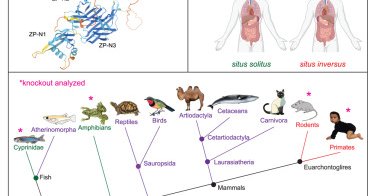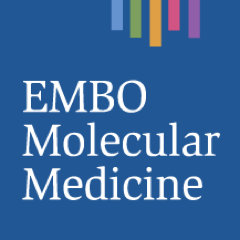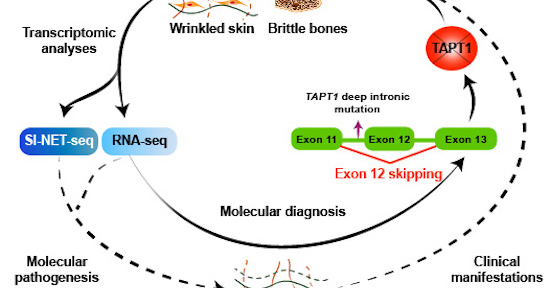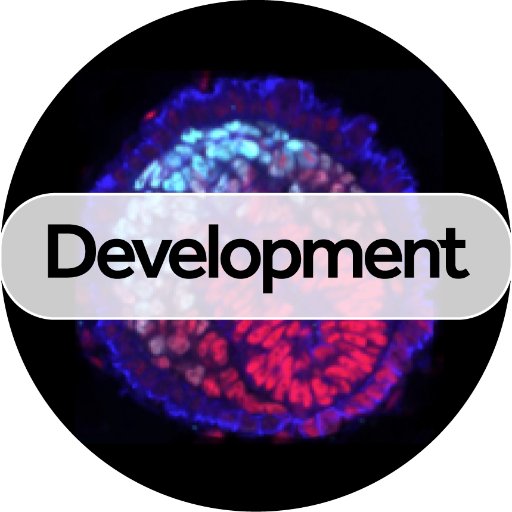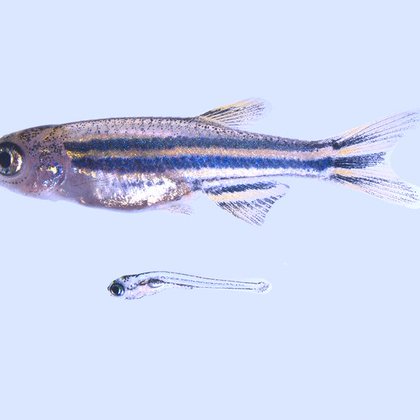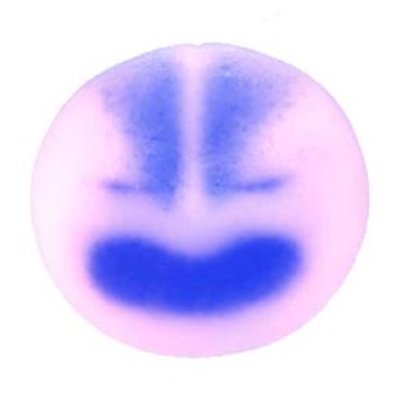
Reversade Lab
@ReversadeLab
Followers
467
Following
495
Media
50
Statuses
291
We study #HumanDevelopment #Embryology #Genetics and #RareDisease at @KAUST. Led by Bruno @reversade.
Saudi Arabia
Joined September 2016
📢New today! 📰CIROZ is dispensable in ancestral vertebrates but essential for left-right patterning in humans 🧑🤝🧑@reversadelab & colleagues https://t.co/mchTzHIurn
cell.com
During evolution, genes can become obsolete and disappear. Here, we characterize CIROZ, an ancestral gene repeatedly lost in some species of fish, birds, reptiles, and mammals. Despite that, we find...
0
3
5
Excellent conference today at #SingaporeFishMeeting2023! And congratulations to Amirah for her poster prize!
1
1
19
Online! A progeroid syndrome caused by a deep intronic variant in TAPT1 is revealed by RNA/SI-NET sequencing. #progeroid_syndrome By A. Mayer, B. Reversade & colleagues @ReversadeLab @mayer_lab 🗞️#openaccess: https://t.co/Om14dnosE5
0
2
5
A great joint work with @mayer_lab, Reversade lab members, clinicians and collaborators!
0
0
0
Our latest work! We identify an intronic variant in TAPT1 that causes exon skipping followed by NMD in a recessive Osteogenesis Imperfecta & progeroid syndrome -by examining nascent transcription versus normal RNA-seq- leading to ECM pathway disruption.
link.springer.com
EMBO Molecular Medicine - Exome sequencing has introduced a paradigm shift for the identification of germline variations responsible for Mendelian diseases. However, non‐coding regions, which...
1
1
15
"In the present manuscript, Wong et al describe for the first time the human phenotype resulting from the bi-allelic germline T543M mutation in the RAF1 proto-oncogene. " Rev #1
"<i>A</i> Progeroid Syndrome Caused <i>by RAF1</i> deficiency Underscores the importance of RTK signaling for Human Development" #RefereedPreprint Samantha Wong, @ReversadeLab et al https://t.co/7GMJuguasb
0
2
2
Deciphering the consequence of deep intronic variants: a progeroid syndrome caused by a TAPT1 mutation is revealed by combined RNA/SI-NET sequencing https://t.co/yAxJUCWwPI
#medRxiv
0
1
1
New work from @Wagnerlab_RNA and @ReversadeLab just out in @NatureComms 👇 Mutations in INTS13 cause a ciliopathy and disrupt Integrator module interactions; the findings underscore the importance of Integrator to human development https://t.co/t7oQgQ9gX8
#URochesterResearch
0
2
7
My thesis work is out now in Nature Communications! The #IntegratorComplex is destabilized by rare mutations in INTS13. This change in Integrator function leads to upregulation of a set of ciliary genes, causing a #ciliopathy in 4 individuals https://t.co/6natKDACKy
nature.com
Nature Communications - The integrator complex is required for the synthesis of protein coding and non-coding RNA and contains the protein INTS13. Here, the authors find germline mutations in...
1
3
3
Huge congrats to @UMCDB PhD student @ReneeConway and team (@joshhwu @tristanfrum @_Alyssa_J_ and collaborators)! R-SPONDIN2+ mesenchymal cells form the bud tip progenitor niche during human lung development, in @Dev_Cell
https://t.co/jASmqJC1ao
#organoids
5
21
80
Omics profiling identifies the regulatory functions of the MAPK/ERK pathway in nephron progenitor metabolism An #OpenAccess Research Article from Hyuk Nam Kwon, Kristen Kurtzeborn, Satu Kuure @shkuure and colleagues https://t.co/bIracKorz5
1
2
4
This was a great international collaboration with many groups including @sethmasters, @KimSamirah, Franklin Zhong, as well as institutes, hospitals and clinicians in Australia, Israel, Turkey, US, France and Germany. @astar_gis IMCB @ASTARsg @NTUsg @reversade
0
0
2
Deficiency in NLRP1-related inflammasome genes rescued DPP9 lethality in mice and zebrafish models. This included IL-1R, but not IL-18, suggesting the role of IL-1 instead of IL-18 signalling.
1
0
2
We identified 3 families segregating recessive loss-of-function DPP9 germline variants, presenting with immunity defects which we termed Hatipoğlu syndrome. Patient cells confirmed that the mutants were strong enzymatic hypomorphs, causing NLRP1 overactivation.
1
0
0
Excited to share our latest collaborative work @SciImmunology: we show that rare loss-of-function mutations in DPP9 – a known inhibitor of the NLRP1 inflammosome – fails to repress NLRP1 (1/4) https://t.co/9HZRVcekoc
science.org
Loss of DPP9 activity in humans, mice and zebrafish results in pathogenic NLRP1 overactivation.
2
5
26
Early Embryogenesis and Epiegenetics (EEE) conference @WeizmannScience February 2023- Registration and abstract submission are now open. Will be great fun and many short talks to be selected from submitted abstracts. https://t.co/Zgictk0U8E
2
38
135
Great exchange between two large-scale national projects @QatarGenome & Precision Health Research Program #PRECISE #Singapore during #PMFG2022 , to advance health &clinical breakthroughs in both countries
0
4
19


